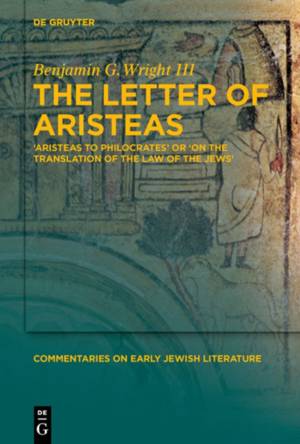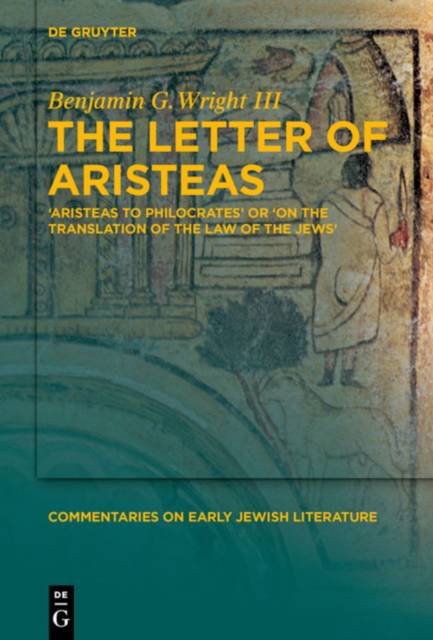
- Afhalen na 1 uur in een winkel met voorraad
- Gratis thuislevering in België vanaf € 30
- Ruim aanbod met 7 miljoen producten
- Afhalen na 1 uur in een winkel met voorraad
- Gratis thuislevering in België vanaf € 30
- Ruim aanbod met 7 miljoen producten
Zoeken
The Letter of Aristeas
'Aristeas to Philocrates' or 'on the Translation of the Law of the Jews'
Benjamin G Wright
€ 402,95
+ 805 punten
Omschrijving
The Letter of Aristeas has been an object modern scholarly interest since the seventeenth century. It is best known for containing the earliest version of the translation of the Hebrew Law into Greek, and this story accounts for much of the scholarly attention paid to the work. Yet, this legend only takes up a small percentage of the work. Looking at Aristeas as a whole, the work reveals an author who has acquired a Greek education and employs both Jewish and Greek sources in his work, and he has produced a Greek book. Even though Aristeas has garnered scholarly attention, no fully fledged commentary has been written on it. The works of R. Tramontano, M. Hadas and others, often referred to as commentaries, only contain text and annotated notes. This volume fills the gap in the scholarship on Aristeas by providing a full, paragraph-by-paragraph commentary, containing a new translation, text-critical notes, general commentary, and notes on specific words, phrases and ideas.
Specificaties
Betrokkenen
- Auteur(s):
- Uitgeverij:
Inhoud
- Aantal bladzijden:
- 513
- Taal:
- Engels
- Reeks:
- Reeksnummer:
- nr. 8
Eigenschappen
- Productcode (EAN):
- 9783110439045
- Verschijningsdatum:
- 25/09/2015
- Uitvoering:
- Hardcover
- Formaat:
- Genaaid
- Afmetingen:
- 163 mm x 236 mm
- Gewicht:
- 861 g

Alleen bij Standaard Boekhandel
+ 805 punten op je klantenkaart van Standaard Boekhandel
Beoordelingen
We publiceren alleen reviews die voldoen aan de voorwaarden voor reviews. Bekijk onze voorwaarden voor reviews.








